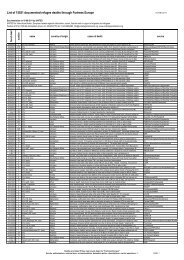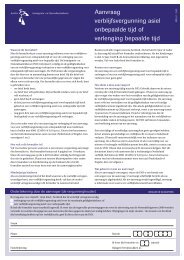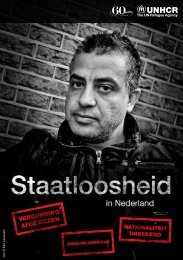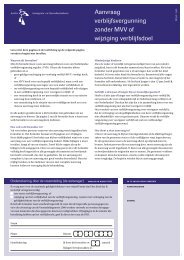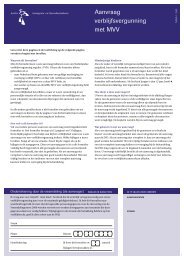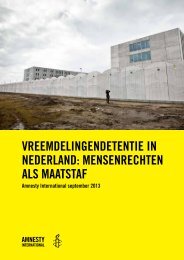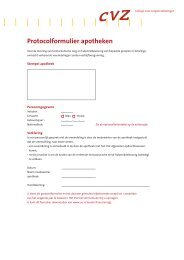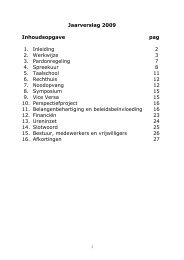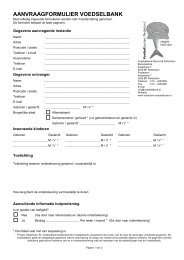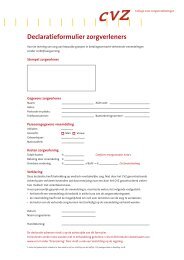Handboek voor begeleiders van vluchtelingen en ... - Stichting ROS
Handboek voor begeleiders van vluchtelingen en ... - Stichting ROS
Handboek voor begeleiders van vluchtelingen en ... - Stichting ROS
You also want an ePaper? Increase the reach of your titles
YUMPU automatically turns print PDFs into web optimized ePapers that Google loves.
(ii) Provision of a Guarantor/ Surety. Asylum seekers would be required to provide a<br />
guarantor who would be responsible for <strong>en</strong>suring their att<strong>en</strong>dance at official appointm<strong>en</strong>ts and<br />
hearings, failure of which a p<strong>en</strong>alty most likely the forfeiture of a sum of money, levied<br />
against the guarantor.<br />
(iii) Release on Bail. This alternative allows for asylum-seekers already in det<strong>en</strong>tion to apply<br />
for release on bail, subject to the provision of recognisance and surety. For this to be<br />
g<strong>en</strong>uinely available to asylum-seekers they must be informed of its availability and the<br />
amount set must not be so high as to be prohibitive.<br />
iv) Op<strong>en</strong> C<strong>en</strong>tres. Asylum-seekers may be released on condition that they reside at specific<br />
collective accommodation c<strong>en</strong>tres where they would be allowed permission to leave and<br />
return during stipulated times.<br />
These alternatives are not exhaustive. They id<strong>en</strong>tify options, which provide State authorities<br />
with a degree of control over the whereabouts of asylum-seekers while allowing asylumseekers<br />
basic freedom of movem<strong>en</strong>t.<br />
Guideline 5: Procedural Safeguards. 10<br />
If detained, asylum-seekers should be <strong>en</strong>titled to the following minimum procedural<br />
guarantees:<br />
(i) to receive prompt and full communication of any order of det<strong>en</strong>tion, together with the<br />
reasons for the order, and their rights in connection with the order, in a language and in terms<br />
which they understand;<br />
(ii) to be informed of the right to legal counsel. Where possible, they should receive free legal<br />
assistance;<br />
(iii) to have the decision subjected to an automatic review before a judicial or administrative<br />
body indep<strong>en</strong>d<strong>en</strong>t of the detaining authorities. This should be followed by regular periodic<br />
reviews of the necessity for the continuation of det<strong>en</strong>tion, which the asylum-seeker or his<br />
repres<strong>en</strong>tative would have the right to att<strong>en</strong>d;<br />
(iv) either personally or through a repres<strong>en</strong>tative, to chall<strong>en</strong>ge the necessity of the deprivation<br />
of liberty at the review hearing, and to rebut any findings made. Such a right should ext<strong>en</strong>d to<br />
all aspects of the case and not simply the executive discretion to detain;<br />
(v) to contact and be contacted by the local UNHCR Office, available national refugee bodies<br />
or other ag<strong>en</strong>cies and an advocate. The right to communicate with these repres<strong>en</strong>tatives in<br />
private, and the means to make such contact should be made available.<br />
Det<strong>en</strong>tion should not constitute an obstacle to an asylum-seekers’ possibilities to pursue their<br />
asylum application.<br />
76




